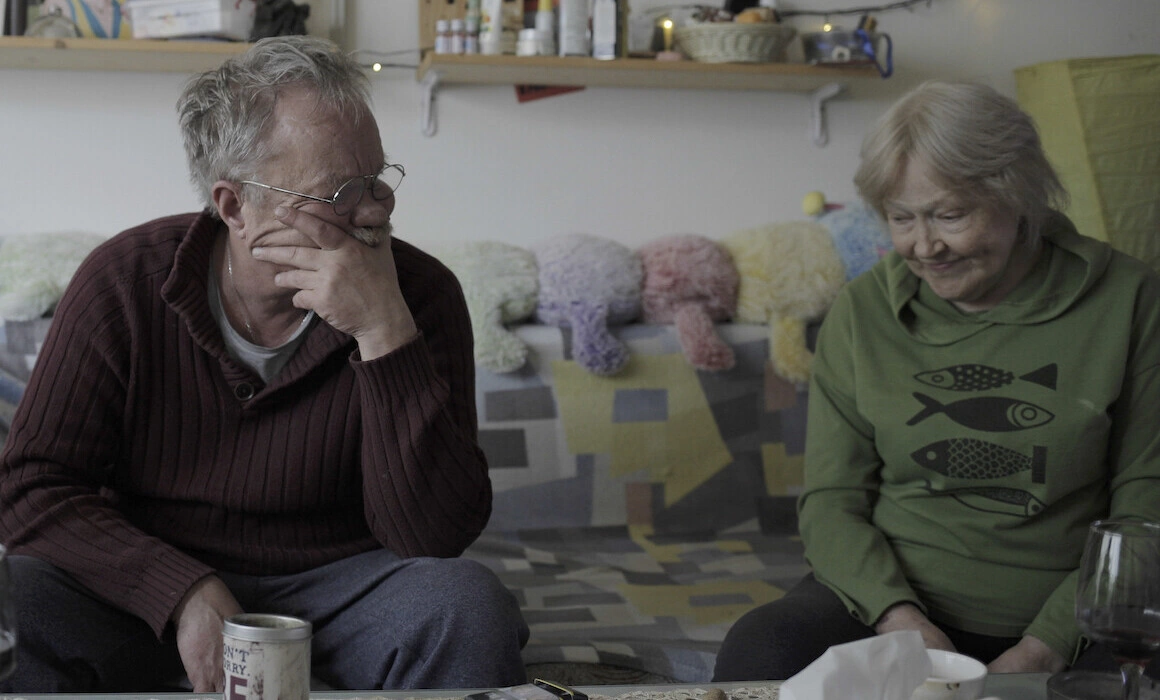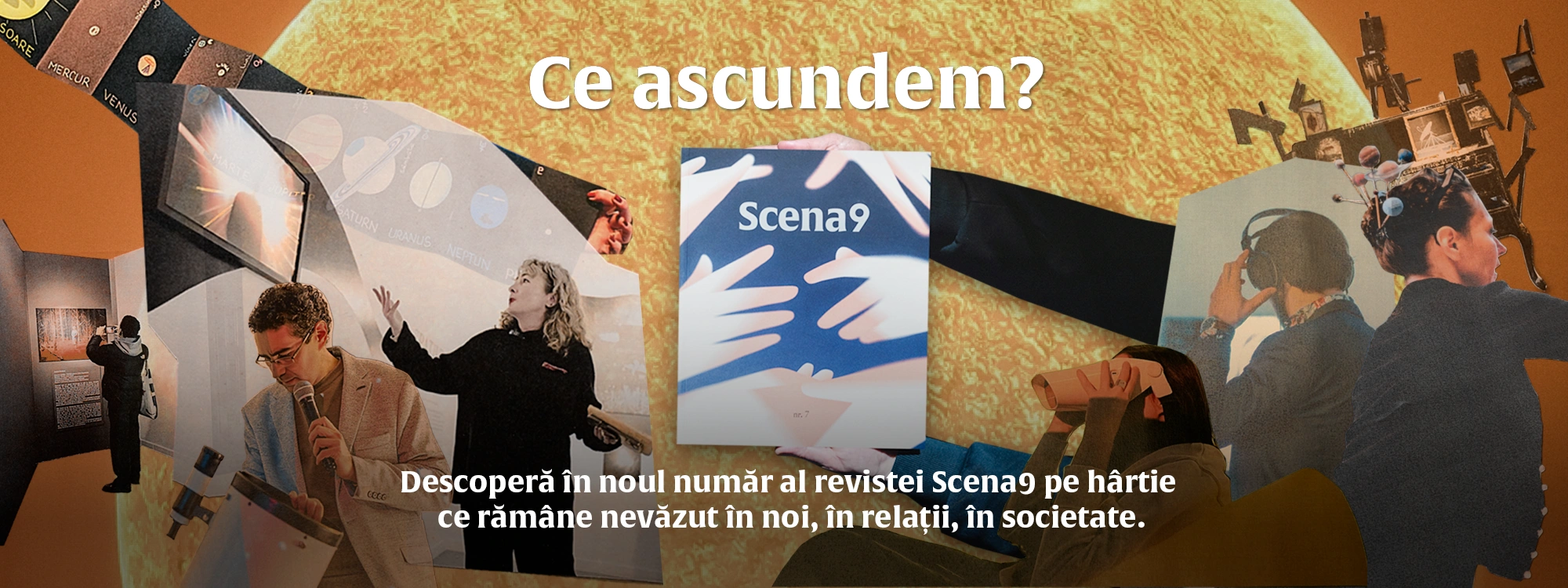They worked in film and television their entire lives, documenting stories of famine and war, traveling and filming throughout the former Soviet Union, from Chernobyl to Bashkortostan. He as a film director, she as a journalist and screenwriter. On January 24, 2022, they celebrated their thirtieth wedding anniversary. One month later, on February 24, the war descended upon them. Only, this time, it wasn't the subject of a movie, the theme of a festival, or a retrospective look. It was very real and could only be described in terms of the present.
It was 5am when Victoria Bodnar and Sergei Bukovsky were awakened by the sound of an explosion. They jumped out of bed and the first thing they did was open a laptop to read the news. That's how they found out that the Russian army had just invaded Ukraine. The explosion they had heard from their home, 15km away from Kyiv, frightened them so that, in under 20 minutes, Victoria and Sergei packed their bags, took their two dogs, Kasha and Kiara, got in the car and drove to the Ukrainian-Romanian border.
They arrived at the Siret customs checkpoint after a very long journey, with many blockages and long waiting hours, during which time I exchanged a few messages with them via WhatsApp. From Siret, they headed to Suceava, where they were hosted by a couple of young local actors, Alex and Diana. The day after they entered Romania, I paid them a visit, before their departure for Sofia, Bulgaria (where they will be staying for a few weeks).
I arrived in Suceava on a gray, cold afternoon and found Victoria and Sergei sitting on the couch watching the news. In a green sweatshirt, she looked somewhat jovial and energetic, but her husband smoked like a chimney and was visibly overwhelmed by everything he saw on TV.
"I know there are people who do not want to watch the news at such times, but I think you have to watch what happens, you have no choice," says Victoria with one hand resting on her husband's shoulder. "Okay, someone like Sergei is really overdoing it with the news, last night he was up until 2am, watching CNN."
"Victoria is the optimist, I'm the pessimist," he added, smiling faintly.
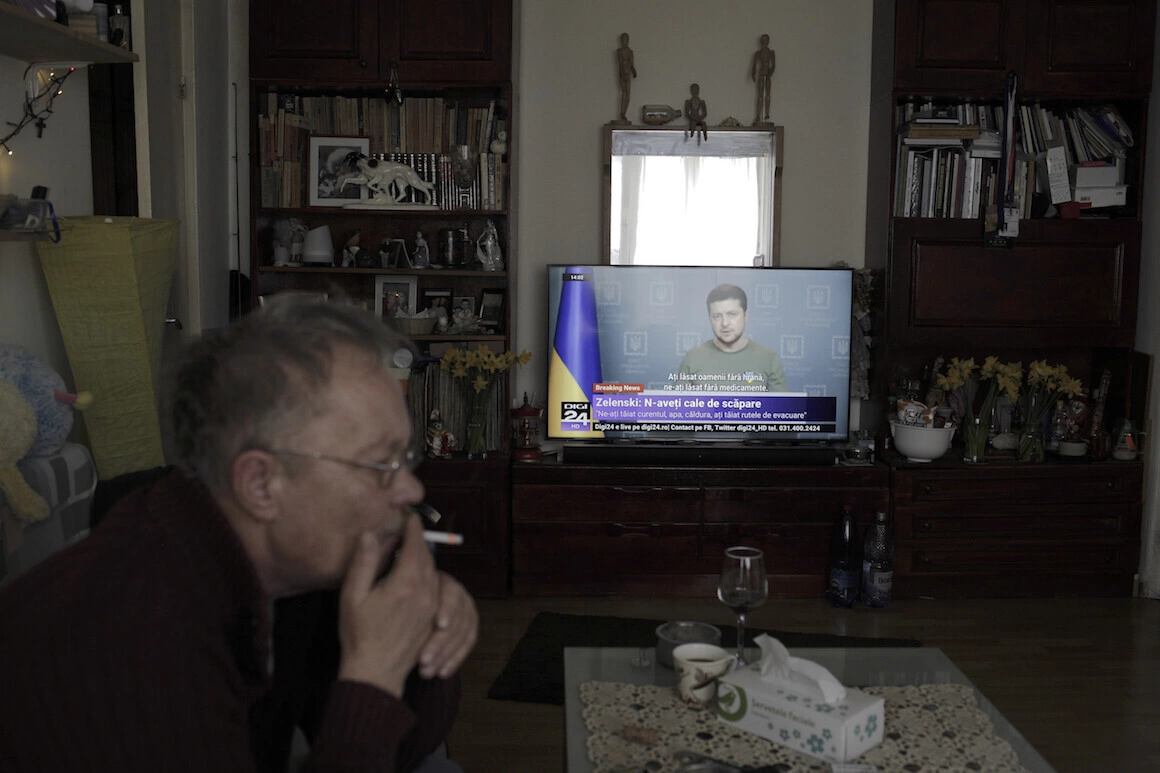
We are all potential refugees today
The two met in the age of Perestroika, at a time when they crossed paths working in television and on various documentary film projects.
"In Gorbachev's time, people in the world of documentary film in Ukraine and Russia were very close. We were all a big family, helping each other, working together. Things have changed radically since then," Sergei reminisces. "We had friends in Russia before the 2014 annexation of Crimea, but after that relations cooled down and friendships dwindled. It wasn't forced, it just happened."
Russian by origin, Sergei was born in Bashkortostan, the son of director Anatoly Bukovsky and actress Nina Antonova (the family moved to Kyiv in the early 1960s). Sergei Bukovsky made over 40 films throughout his career, of which the best known is War. Ukrainian Account (about World War II), The Living (about the Great Famine in Ukraine) and Spell Your Name, a Holocaust documentary produced by Steven Spielberg. Together with wife Victoria, he founded a film school in Kyiv, from which several important directors have emerged (including Igor Strembitsky).
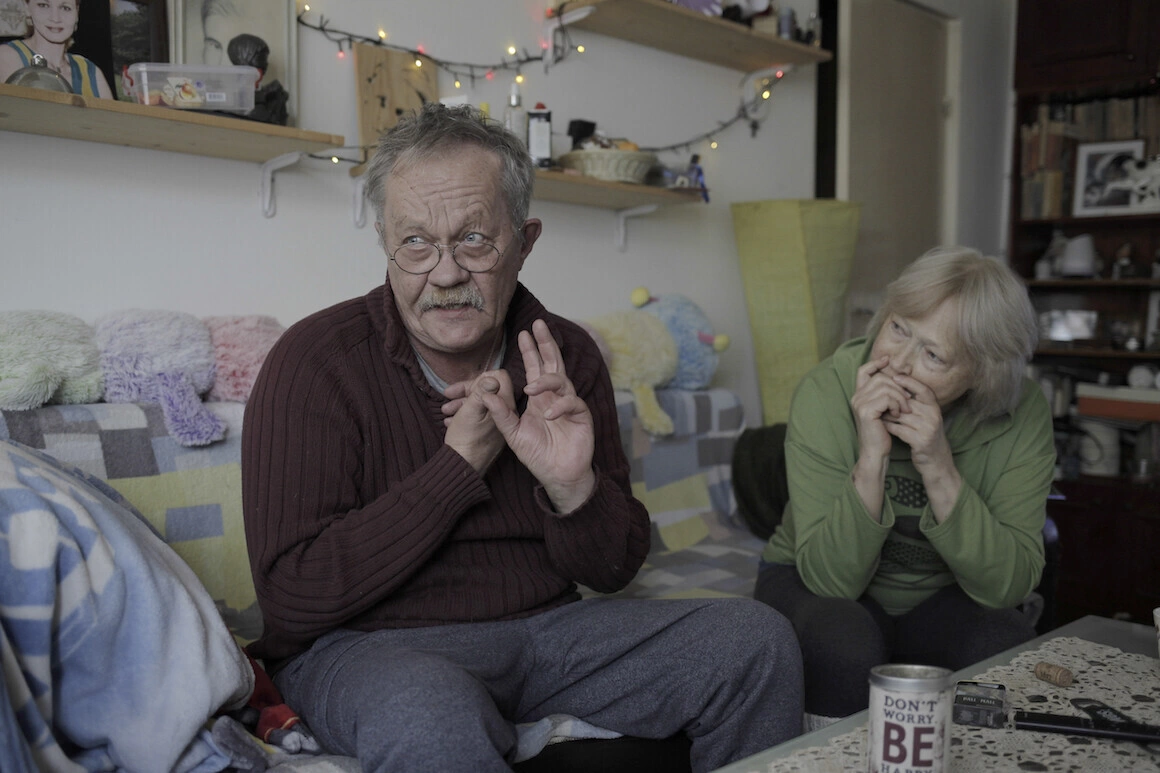
"Many of my students and younger friends have stayed behind in Kyiv, filming every day and documenting everything they see. I hope they take good care of themselves and nothing happens to them," Sergei says. "I remember filming in the Nagorno-Karabakh region in the early 1990s, when I saw the results of that conflict - a conflict that never ended -, and I was horrified. It's horrible… And to think I've seen a lot of movies about refugees from all over the world in my life, but when you see them in the movies, they all seem far away. Syria, Iraq, Africa - they were far away from me, I was in my Ukraine, which seemed free and happy. A few years ago, I went with Victoria to Washington, where we also visited a photography exhibition. I will not go into details, but I will only refer to the message of the exhibition, which was very simple and clear: each of us is a potential refugee today. "
"And that's true: we can all become refugees overnight," his wife says. "Who would have imagined at that moment, when we were just ordinary visitors in an exhibition, that in a few years’ time we would end up in this situation?"
The day they left home, they tried to take Sergei's mother, Nina Antonova, a legendary film actress in Ukraine, who is now almost 90. But she refused. "I don't want to leave, this is my house, this is where I have lived all my life. And what's the point of going when you’re my age?”, Nina Antonova told her son.
"She’s staying in her apartment in Kyiv and sleeping in the bathroom," Victoria explains. "We are still negotiating with her, maybe she will agree to be taken to Poland. She is a strong woman and an extraordinary actress. At her age, she is active and still plays important roles."
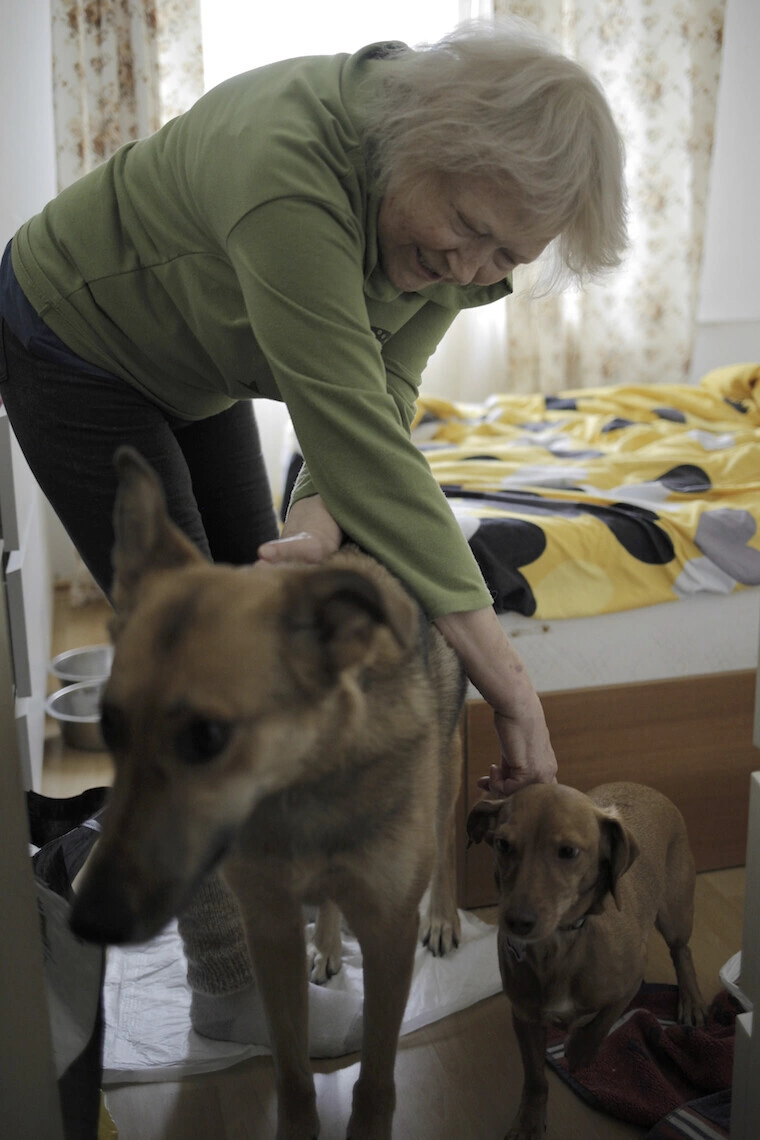
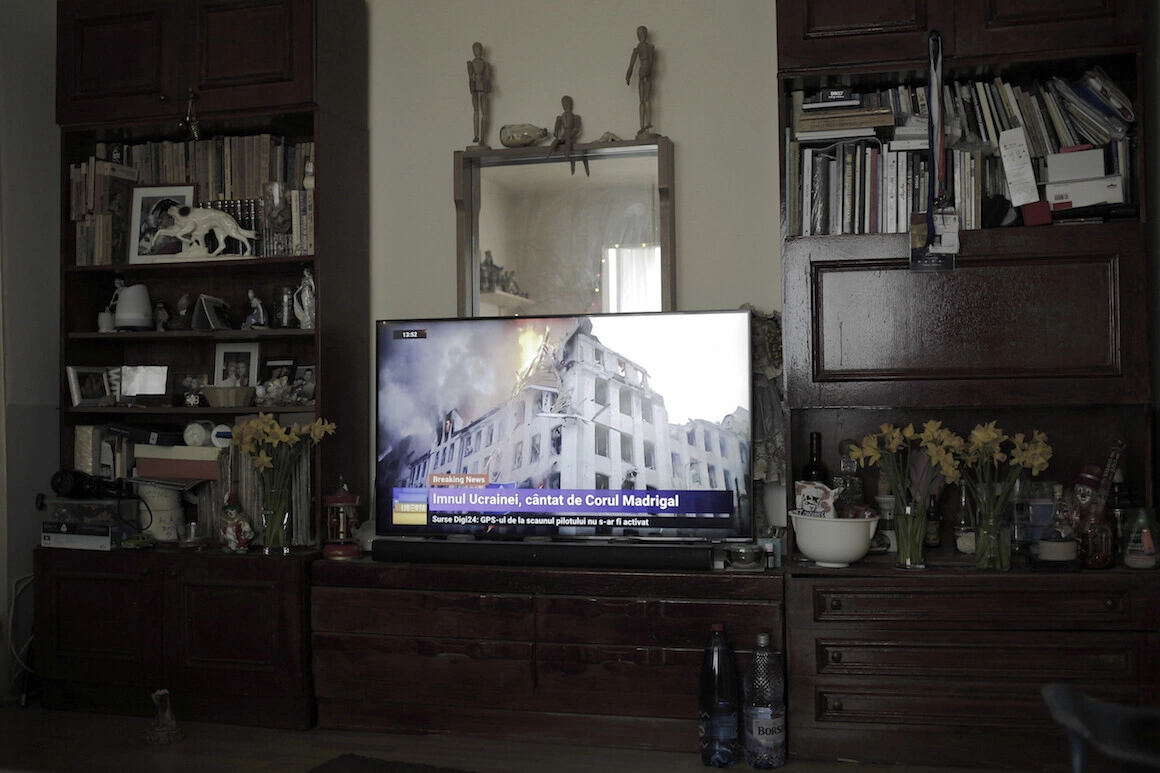
"Why aren't we hearing the voices of Russian artists?"
After trying to avoid the news while we were talking, Sergei lights another cigarette and moves to another chair to watch one of Zelensky's speeches. Victoria takes out her phone and sits down next to me to show me a clip in which Brian Cox, the actor who plays Logan Roy in Succession, blames Russian artists for not publicly condemning the Russian invasion of Ukraine. "Why aren't we hearing the voices of Russian artists? Why is it so quiet?”, Victoria asks, with her eyes on the phone. "Let's not forget Mikhalkov, Putin's friend," Sergei's voice is heard from a corner of the room. "Nikita has no business, he's probably at his villa in Italy now, he can’t be bothered with this. As for Putin, do you know what his nickname was in his youth? The Moth. I think that says it all about this guy. "
Before I leave, they want to tell me something else, something very painful, which they’ve tried to forget on their way to the border, but which is now weighing heavily on both of them.
"We were so stunned and in a hurry that we left home without taking anything with us," says Sergei with a heavy sigh. "All my movies, all my archives, all my movies, all my hard work, all my life's work was left behind there."
"Even Sergei's last unfinished film, which he has been working on for the past few years, was left at home," adds Victoria.
This latest film by Sergei Bukovsky is about Ivan Dziuba, one of the most famous Ukrainian dissidents. A renowned literary critic and Minister of Culture in the early 1990s, Dziuba also authored a very important book, Internationalism or Russification?, published in 1965, in which he denounced Stalinist chauvinism and the false internationalism that that regime simulated. Dziuba wrote the book shortly after dozens of Ukrainian intellectuals were arrested and sentenced to prison in the early 1970s for "anti-Soviet activity." He was also one of the first Ukrainian intellectuals to speak publicly about the Babi Iar massacre (Kyiv), where more than 30,000 Jews were killed in September 1941 (another topic that the Soviet authorities, then in their anti-Semitic stage, had swept under the rug).
Ivan Dziuba died on February 22, 2022, two days before the beginning of Russia's invasion of Ukraine. He was 90 years old.
"Unbelievable, isn't it?" Serghei exclaims, crushing his cigarette in the ashtray. "To die in your sleep, two days before the war begins. I don't even know what to make of that. I'm very sorry we didn't get to say goodbye to Ivan."
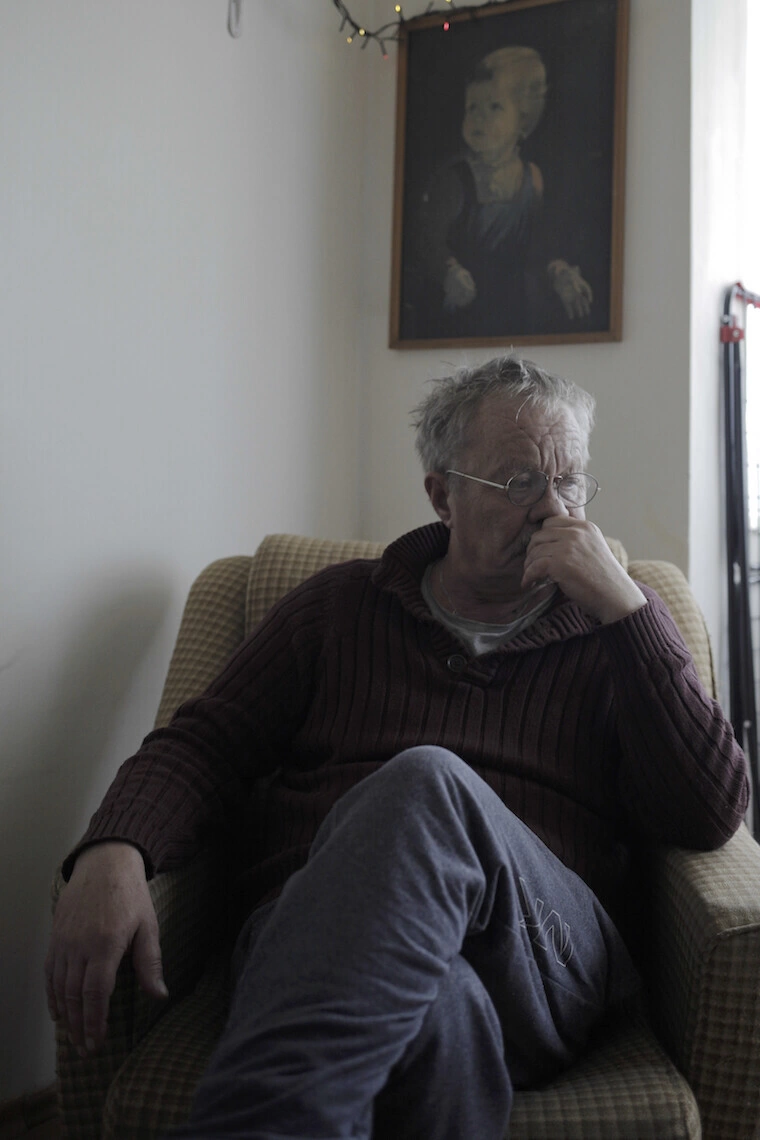
Translated from the Romanian by Ioana Pelehatăi
